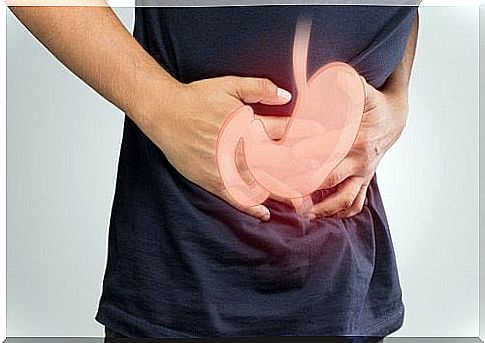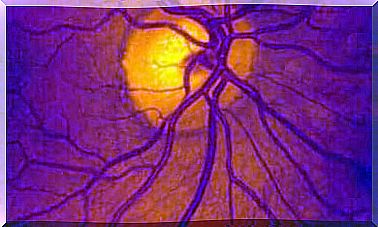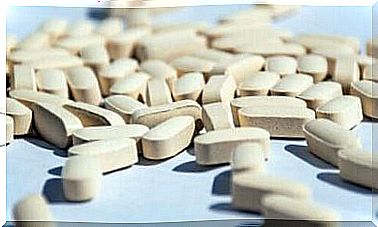Functional Dyspepsia: Causes, Symptoms And Remedies
Functional dyspepsia is a disease that is practically caused by stress or anxiety, which can affect the stomach and increase the gastric mucosa. It is characterized by being a very common emotional disorder that affects many people and produces symptoms such as heartburn, nausea, heartburn or abdominal pain.
Functional dyspepsia can be acute or chronic. Acute gastritis occurs abruptly and is intense. However, chronic gastritis can last for years if left untreated.
A less common form of the disease is erosive gastritis, which generally does not cause much inflammation, but can cause bleeding and ulcers on the lining of the stomach.
Inflammation can be caused by many factors such as infection, stress, damage or disorders of the immune system. Several studies have confirmed that emotional stress and depression can affect the development of gastrointestinal disorders such as functional dyspepsia.
Fortunately, the symptoms of this disease can be treated at home with some natural remedies.
What is the cause of functional dyspepsia?
Functional dyspepsia can be due to one of the following factors:
- Stress
- Anxiety
- Nervousness
- Excess consumption of alcohol
- Vomiting
- Infections caused by allergies or viruses
- Bile regurgitation
- Poor diet
In addition to these factors, functional dyspepsia occurs mainly due to a bacterium called Helicobater pylori, which increases with the above symptoms. Being overwhelmed with your daily routine along with family responsibilities can also make this condition even worse.
This bacterium is located between 60 and 80% of people’s stomachs. It is usually asymptomatic, but it can damage the protective gastric mucosa.
Keep reading to find out more.
What are the symptoms of functional dyspepsia?

Symptoms of functional dyspepsia can vary from individual to individual. Among the most common are:
- Vomiting
- Black stools
- A burning sensation in the stomach
- Loss of appetite
- Abdominal pains
- Indigestion
- Nausea
- Bad stomach
- Heartburn
“Good health is not something we can buy. However, it can be an extremely valuable savings account. ”
-Anne Wilson Schaef-
Treatment for functional dyspepsia
To treat this disease, you need to follow a light and healthy diet to help regulate the symptoms. This means that you must include vegetables, fruit, meat, fish, soup, rice and plenty of water in your meals.
At the same time, being emotionally stable is crucial to treating gastritis. The fact of maintaining a mental balance helps the body compose itself, thus allowing the body and mind to be in harmony and function well.
Therefore, among other things, you must learn to manage stress, because it can be responsible for increasing the production of stomach acid and decreasing the lining of the stomach. On the other hand, exercise is the best solution to relieve stress and stimulate the production of endorphins.
Plus, we recommend limiting your consumption of painkillers. If you suffer from episodes of functional dyspepsia and you buy over-the-counter medications, these can provide temporary relief. However, you would be better off consulting a specialist because they can give you a prescription to reduce the acidic secretions effectively and protect the mucous membrane.
Also read: How to do squats correctly: 4 recommendations
What remedies alleviate this mental illness?

The most important thing you can do at home is to control your diet and relieve stress.
Remember that food plays a central role in the treatment of functional dyspepsia. Not only because food prevents stomach upset in the short term, but it also protects the digestive system in the long term. Avoid drinking alcohol, eating processed foods, acids, dairy products and sugary or spicy foods.
We recommend including foods that have probiotics because they can help improve digestion and stimulate regular exercise. These supplements add good bacteria in the digestive tract which can help stop the spread of Helicobater pylori bacteria.
- Studies also show that drinking green tea with honey at least once a week helps significantly reduce the incidence of H. pylori in the digestive tract.
- You can also try a spoonful of baking soda (9 g) because it can help stop heartburn caused by functional dyspepsia.
- Aloe vera is also one of the plants used to relieve burns and also helps minimize the consequences of functional dyspepsia.
- Essential oils, such as peppermint or ginger, can have a positive effect on the stomach.
Also read: Try this 15 minute fat burning routine
Finally, do not forget that stress can cause and exacerbate functional dyspepsia. Therefore, it is very important to consider lifestyle changes that can help reduce anxiety levels. If you start exercising, eating a healthy diet and sleeping well, you will most likely feel much better.









